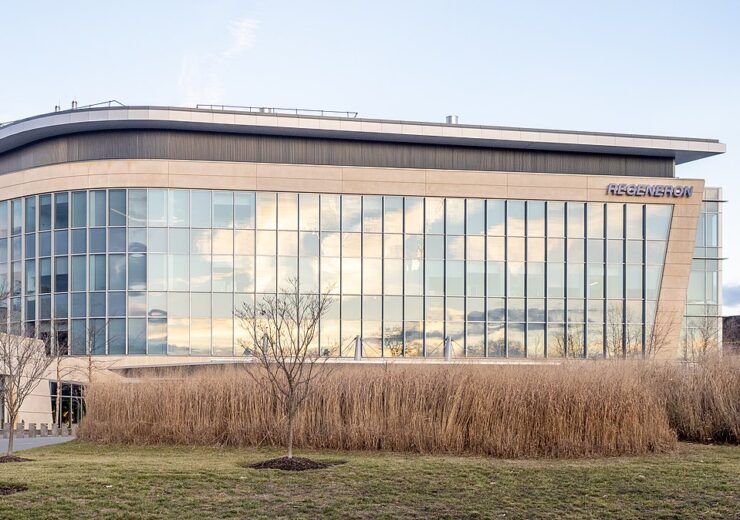In the trial, Dupixent reduced moderate or severe acute COPD exacerbations by 34% over 52 weeks and led to fast and major improvements in lung function at 12 weeks and were sustained for 52 weeks

An image of Regeneron Pharmaceuticals’ office. (Credit: ajay_suresh from Wikimedia Commons)
Regeneron Pharmaceuticals and Sanofi said that their Dupixent (dupilumab) has reduced chronic obstructive pulmonary disease (COPD) exacerbations significantly in the second positive investigational Phase 3 NOTUS trial.
Dupixent is a fully human monoclonal antibody. It is designed to prevent the signalling of the interleukin-4 (IL-4) and interleukin-13 (IL-13) pathways.
The results validate the positive results from the late-stage BOREAS trial.
The NOTUS trial assessed the investigational use of Dupixent against a placebo in adults currently on maximal standard-of-care inhaled therapy with uncontrolled COPD and evidence of type 2 inflammation.
According to an interim analysis, Dupixent reduced moderate or severe acute COPD exacerbations by 34% over 52 weeks, which was the primary endpoint.
The results also revealed that the treatment with Dupixent led to fast and major improvements in lung function at 12 weeks and was sustained for 52 weeks.
In addition, the safety results were similar to the known safety profile of Dupixent in its approved indications.
Regeneron board co-chair, president and chief scientific officer George Yancopoulos said: “We are highly encouraged by these remarkable results from NOTUS showing a 34% reduction in COPD exacerbations compared to placebo, confirming the unprecedented results from our first Phase 3 trial, BOREAS.
“These results demonstrate the important role of type 2 inflammation in yet another chronic and debilitating disease, and the ability of Dupixent to address this inflammation. We are working to submit these data rapidly to the FDA.”
In the NOTUS study, 935 adults between the ages of 40 and 85 who were smokers at some point in the past were randomly assigned to receive Dupixent or a placebo in addition to the maximal standard-of-care inhaled treatment.
Important secondary endpoints consist of changes from baseline in lung function at 12 and 52 weeks.
Dupixent was discovered using Regeneron’s proprietary VelocImmune technology.
Regeneron and France-based Sanofi plan to submit the data from this replication trial to the US Food and Drug Administration (FDA), along with positive outcomes from the Phase 3 BOREAS trial by the end of 2023.
